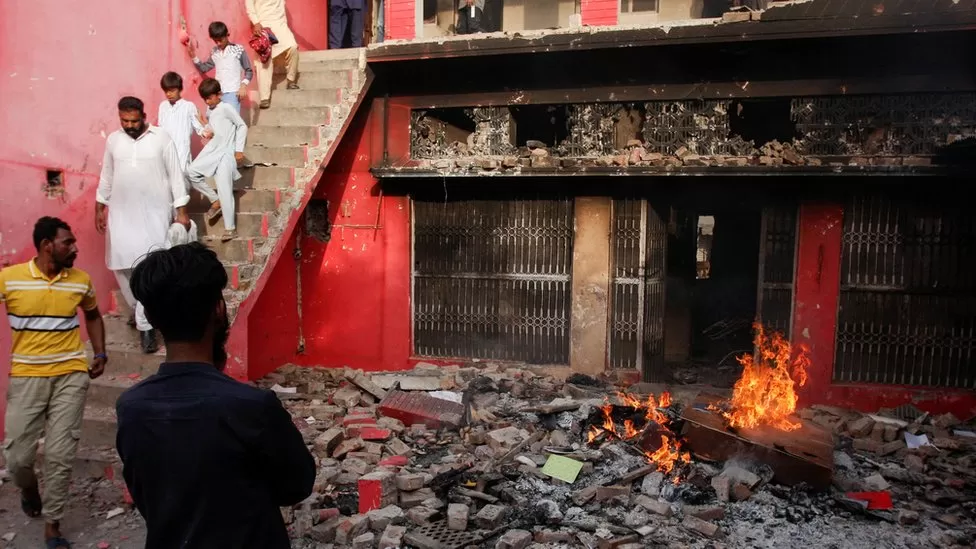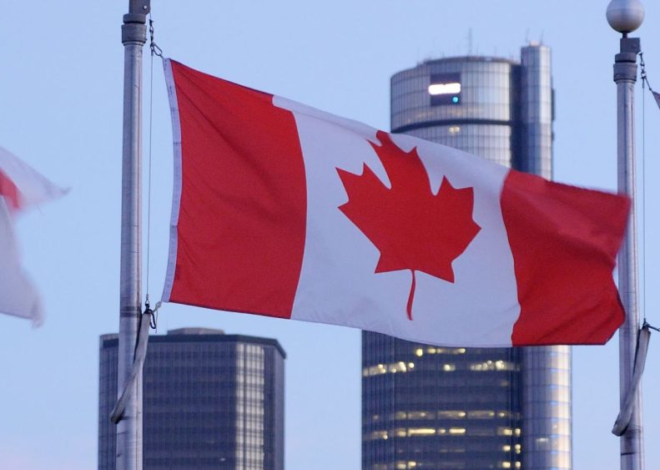
More than 100 arrested for setting churches on fire

In an eastern city of Pakistan, over a hundred individuals have been apprehended following a series of incidents where thousands of Muslims set fire to churches and wreaked havoc on homes.
The unrest in Jaranwala was ignited by allegations that two Christian men had torn pages from the Quran. As of Thursday, the historic Salvation Army Church continued to smolder, a day after the outbreak of the riot. Amid the tension prevailing in the city, the ruins have been cordoned off with barbed wire.
For a period of seven days, public gatherings have been limited in the Faisalabad district, encompassing Jaranwala. Despite facing charges of blasphemy, punishable by death in Pakistan, the two men accused of desecrating the Quran have yet to be arrested.
While Pakistan has not executed anyone for blasphemy, mere accusations often result in widespread unrest, occasionally leading to violence and fatalities.
According to a local official quoted by BBC Urdu, protests and fires were reported early Wednesday, prompted by social media and city-wide circulation of news about the alleged Quran desecration.
Allegedly, torn pages of the sacred text, bearing blasphemous content in red marker ink, were found near a Christian community. The reports incited outrage among Muslims, leading to violent mobs attacking and looting homes owned by Christians.
According to police information shared with the BBC, possessions of Christians were dragged into the streets and set ablaze. Yassir Bhatti, a 31-year-old Christian, was among those forced to flee their residences.
“They shattered windows, doors, and hauled out refrigerators, sofas, chairs, and other belongings to pile up in front of the Church for burning,” he recounted to AFP news agency.
“They also torched and defiled Bibles; their actions were merciless.”
Videos circulating on social media exhibit protesters ransacking Christian structures while police appear to be present. Pastor Javed Bhatti, a local priest, lamented the destruction: “They set fire to everything. They ravaged our homes, this place of worship.”
Another woman, named Sonam, escaped with her three children just before the area was attacked.
“We left without even changing clothes,” she revealed. “We grabbed our little ones and fled.”
In 2019, a Sri Lankan man accused of blasphemy was lynched and his body set ablaze by an enraged mob. In 2009, an accusation of insulting Islam led to the burning of around 60 homes and the killing of six people in the Gorja district of Punjab.
Pakistan adopted the blasphemy law from the British during the 19th century. Harsher penalties, including the death penalty for insulting Islam, were introduced in the 1980s.
With around 96% of the population adhering to Islam, Pakistan’s religious tensions have escalated due to the severity of the blasphemy law, which, according to researcher Iftekharul Bashar from think-tank RSIS, has contributed to increased violence against religious minorities.
“The Pakistani society has experienced increased fragmentation, driven by widening economic disparities, leading to an upsurge in violence directed towards minority religious groups,” Bashar noted.
He also pointed to the emergence of extremist and vigilante factions, some of which receive substantial financial backing, as contributing factors.
Amir Mir, the information minister for Punjab province, denounced the alleged blasphemy incident and reported that numerous police personnel had been deployed to the area, with multiple individuals detained.
Although the agitated group was largely comprised of members from an Islamist political party called Tehreek-e-Labbaik Pakistan (TLP), the TLP denied any involvement.
Caretaker PM Anwar ul-Haq Kakar called for swift action against those responsible for the violence.
In a neighboring city, Pakistani bishop Azad Marshall, based in Lahore, expressed deep distress over the events. He urged for justice, immediate intervention, and safety for all citizens.








